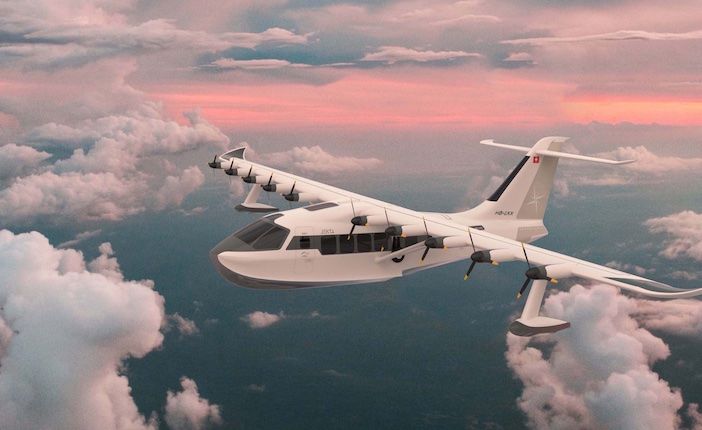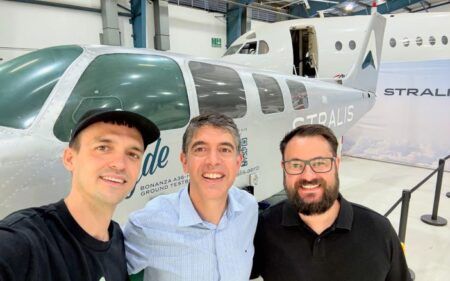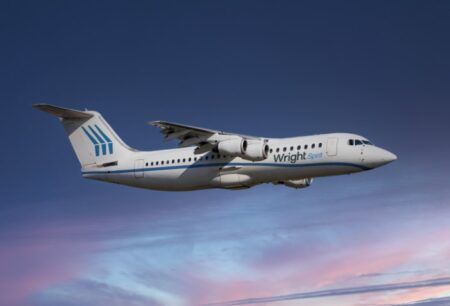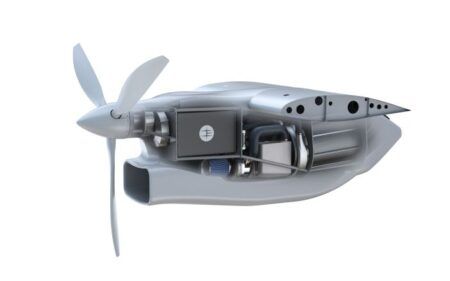Switzerland-based startup Jekta looks set to pick Honeywell to supply several key systems for its forthcoming all-electric seaplane, including powertrain, avionics and flight control systems.
The two companies have signed a MoU to explore which of Honeywell’s systems can be used in the Passenger Hydro Aircraft Zero Emission 100 (PHA-ZE 100) seaplane, which Jekta bills as the world’s first electrically-powered amphibious aircraft.
As part of the agreement, Jekta and Honeywell will design and co-develop avionics, electric engines, flight control systems, and connectivity, with the final system architecture and integration to be confirmed by the end of this year.
In addition, Jekta and Honeywell will collaborate on discerning the viability of single-pilot operations for commercial flying of the PHA-ZE 100 aircraft.
The all-electric 19-seat PHA-ZE 100 amphibious flying boat will be powered by batteries or hydrogen fuel cells, with an initial projected flight endurance of one hour and a 30-minute reserve using batteries.
The aircraft will be certified to EASA CS-23 and US FAA FAR-23 standards for fixed-wing passenger aircraft. Jekta plans for the regional seaplane to enter service in 2029.
The PHA-ZE 100 will be able to operate from coastal waters in waves up to 1.2m (4ft) high, lakes, waterways, and runways, the latter using its standard retractable wheeled landing gear. Jekta is aiming to reduce per-passenger-per-hour costs by more than 70% compared to current seaplanes.
George Alafinov, CEO of Jekta Switzerland said, “Our sustainable airframe represents the most contemporary design and development, and consequently, we want to partner with suppliers renowned for their vision, expertise and flexibility.
“The signing of this MOU is a real vote of confidence for Jekta and the PHA-ZE 100, which will satisfy the travel demands of a whole new generation of passengers seeking affordable, environmentally friendly, regional travel solutions.”
The Alafinov family previously founded amphibious aircraft manufacturer Aerovolga, the maker of the the eight-seat, composite LA-8 and the D-Borey ultralight seaplane. Jekta is currently building a new 26,901m2 production and flight test facility in Vaud, Switzerland which will include design, certification, logistics, maintenance, and sales departments; an assembly hall; quality control laboratory; flight test organization; and administrative offices.
The Swiss-company is not the only company around the world developing electric seaplanes. Other firms developing and testing waterborne aircraft that use alternative powertrains include Canada-based Harbour Air and Australia’s Sydney Seaplanes.





